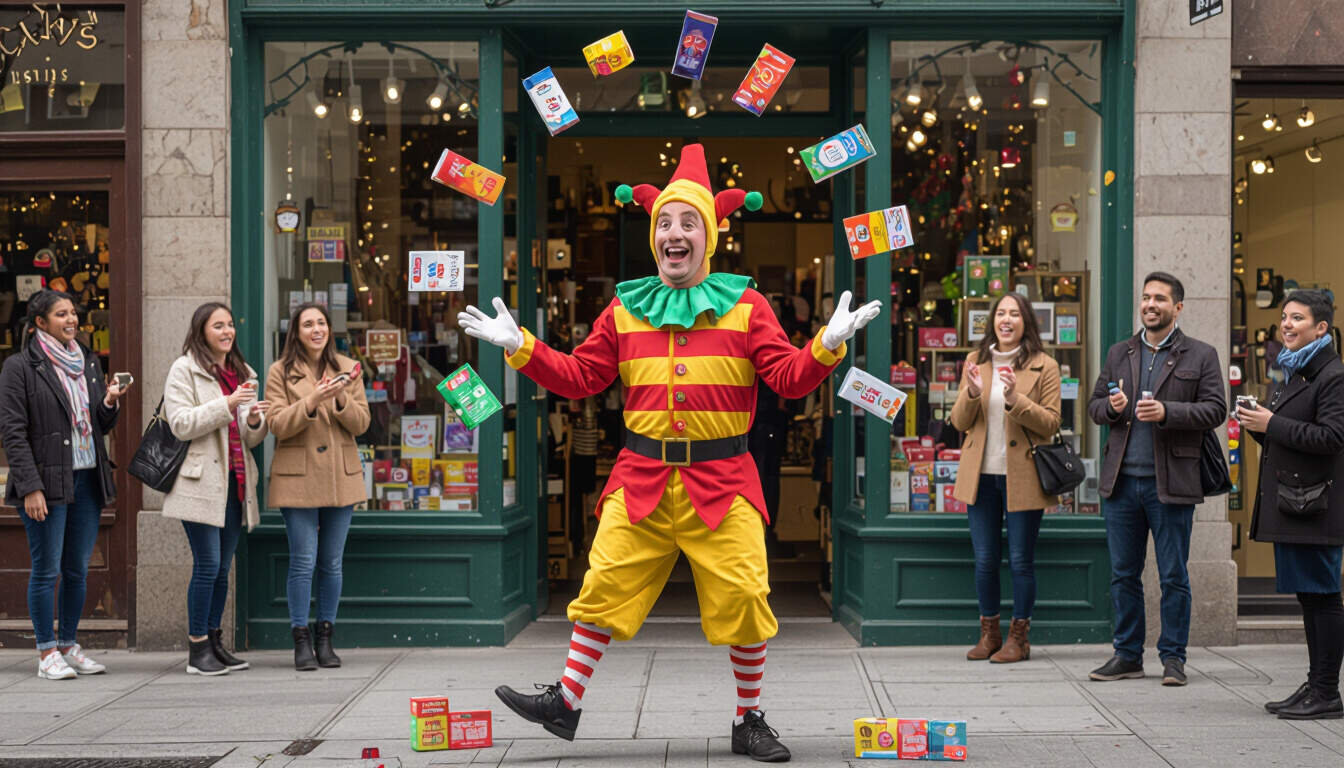Guerrilla PR with Entrepreneurial Street Theater
 by Verner Mayer
by Verner Mayer
Discover how entrepreneurial street theater serves as a dynamic tool for guerrilla PR in niche markets. This approach helps small businesses create memorable brand experiences, foster community engagement, and achieve cost-effective visibility through creative performances.

Entrepreneurial street theater offers a fresh way for small businesses to stand out in crowded markets. By turning public spaces into stages, entrepreneurs can connect directly with audiences in unexpected ways. Street theater involves live performances that blend entertainment with marketing messages, making it ideal for niche brands seeking attention without big budgets.
This method draws on creativity to build immediate rapport. For instance, a local artisan could stage a puppet show that highlights their handmade goods, drawing crowds and sparking conversations. The key lies in its simplicity and directness, allowing for real-time feedback from viewers.
One effective aspect is its ability to target specific groups. In niche markets, where customers share common interests, performances can be customized to resonate deeply. A coffee roaster might use actors to mimic daily routines with their beans as the star, creating a fun narrative that sticks in people's minds.
To get started, plan your performance carefully. First, choose a location with high foot traffic, like parks or markets, where your ideal customers gather. Keep the script short and engaging, focusing on your brand's unique story. Props should be simple yet eye-catching to avoid overwhelming the audience.
Incorporating elements of surprise can amplify impact. Imagine a flash mob that suddenly breaks out to promote an eco-friendly product line. This not only entertains but also generates buzz through shared videos and word-of-mouth. Guerrilla PR tactics like these rely on spontaneity to create viral moments.
Benefits for Small Businesses
Using street theater can yield several advantages. It lowers costs compared to traditional advertising, relying mostly on time and imagination rather than paid media. Additionally, it builds authenticity, as live interactions feel more genuine than digital campaigns.
For marketers, this approach fosters loyalty. When people participate or laugh along, they form emotional ties to the brand. A bookstore owner, for example, could enact scenes from popular books, drawing in readers and turning passersby into patrons.
Steps to Implement Your Own Street Theater
Here are some practical steps to bring your idea to life:
- Select your theme: Align the performance with your brand's core values. If you sell outdoor gear, base it around adventure stories.
- Assemble a team: Recruit enthusiastic helpers, like friends or staff, to act out scenes. No professional actors needed—just passion.
- Rehearse briefly: Practice once or twice to ensure smooth flow, but keep it flexible for real-world adjustments.
- Promote subtly: Use social media to hint at the event without giving away too much, building anticipation.
- Measure results: Track engagement through attendance, social shares, and follow-up sales to refine future efforts.
Real-world examples show success. A craft brewery once used street skits to demonstrate brewing processes, turning curious onlookers into loyal customers. Such tactics prove that creativity can drive growth in tight markets.
Challenges may arise, like weather or permissions, so always check local regulations first. Despite this, the rewards often outweigh the risks. Entrepreneurs who embrace this find it opens doors to new networks and opportunities.
In wrapping up, entrepreneurial street theater stands as a testament to innovative marketing. By leveraging public spaces and live energy, small business owners can craft memorable experiences that propel their brands forward. Whether you're a marketer or entrepreneur, experimenting with these methods could spark the next big breakthrough for your niche market presence.
